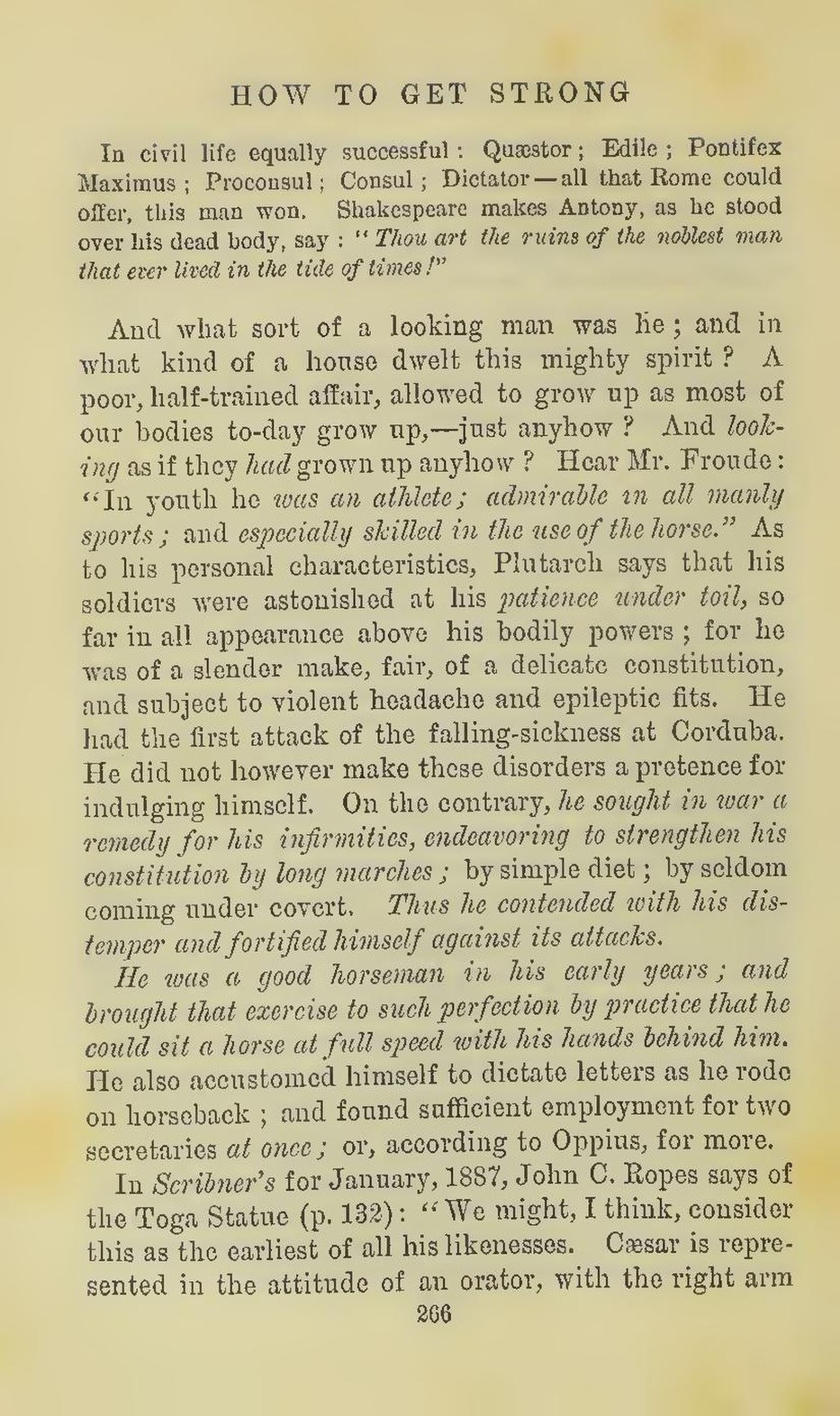HOW TO GET STRONG
And what sort of a looking man was he; and in what kind of a house dwelt this mighty spirit? A poor, half-trained affair, allowed to grow up as most of our bodies to-day grow up,—just anyhow? And looking as if they had grown up anyhow? Hear Mr. Froude: "In youth he was an athlete; admirable in all manly sports; and especially skilled in the use of the horse." As to his personal characteristics, Plutarch says that his soldiers were astonished at his patience under toil, so far in all appearance above his bodily powers; for he was of a slender make, fair, of a delicate constitution, and subject to violent headache and epileptic fits. He had the first attack of the falling-sickness at Corduba. He did not however make these disorders a pretence for indulging himself. On the contrary, he sought in war a remedy for his infirmities, endeavoring to strengthen his constitution by long marches; by simple diet; by seldom coming under covert. Thus he contended with his distemper and fortified himself against its attacks.
He was a good horseman in his early years; and brought that exercise to such perfection by practice that he could sit a horse at full speed with his hands behind him. He also accustomed himself to dictate letters as he rode on horseback; and found sufficient employment for two secretaries at once; or, according to Oppius, for more.
In Scribner's for January, 1887, John C. Ropes says of the Toga Statue (p. 132): "We might, I think, consider this as the earliest of all his likenesses. Cæsar is represented in the attitude of an orator, with the right arm
266
